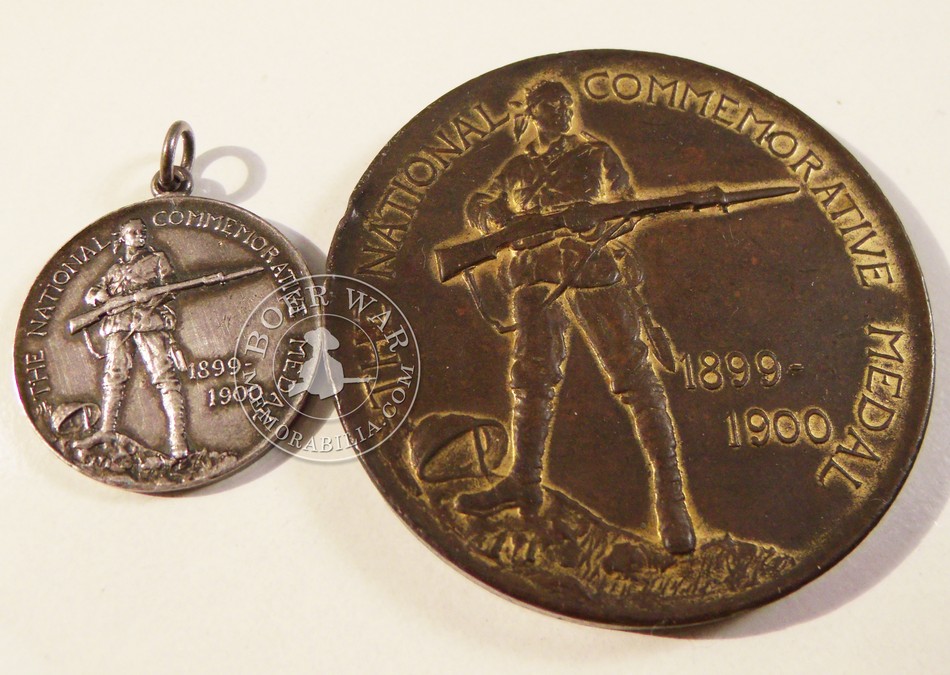|
View the embedded image gallery online at:
https://boerwarmemorabilia.com/index.php/memorabilia/medallions/item/165-boer-war-medallion#sigProId3fe11cdd56 |
Item Ref# MS7441
The Absent Minded Beggar - Boer War
Obverse: Full figure of a British soldier with rifle at the ready standing on rocky ground, head bandaged and helmet at his feet. To the right: “1899- / 1900”. |

Kitchener's Death Camps for the Boers and Their Allies
The first camp was setup in Mafikeng in about July 1900. But it was Kitchener who expanded the camp system, and it was under his watch that most of the deaths occurred. Of course, the term “refugee camps” is a misnomer, since these camps were the logical result of the deliberate scorched-earth policy.
In conjunction with that policy, these camps comprised part of the British military strategy to defeat the Boers who were still in the field. The British military authorities wanted to sever all ties between the recalcitrant Boers, who doggedly continued their futile struggle, and their families who provided the Boers with food, fodder, shelter, medical care and information.
The British claim that the death of civilians in the camps were never intended, but (unconvincingly) put the deaths of thousands down to maladministration and neglect. At the very least, over 31 000 of the approximately 145 000 white inmates died in the forced "refugee camps". Although very poor records exist, it is estimated that some 23 000 of the approximately 140 000 black people held (however they were not held in concentration camps with barbed wire and guards) died.
Source: Boer Guerrilla and British Counterguerrilla Operations
| Scripture |
|
“And when he had called the people unto him with his disciples also, he said unto them, Whosoever will come after me, let him deny himself, and take up his cross, and follow me. For whosoever will save his life shall lose it; but whosoever shall lose his life for my sake and the gospel’s, the same shall save it.”
Mark 8:34, 35 |

